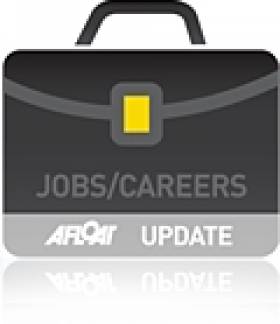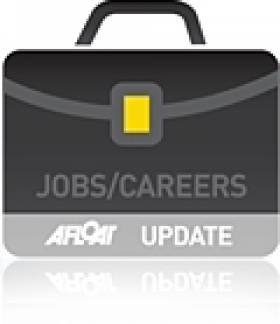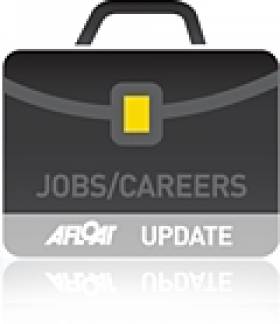Displaying items by tag: instructor
Royal St George Yacht Club Seeks 2016 Sailing Instructors
The Royal St George Yacht Club in Dun Laoghaire is to recruit a team of committed sailing instructors and coaches for its 2016 Summer programmes on Dublin Bay.
The open positions required for instructors are:
Senior Instructor x 1
Kites and Wires x 1
Racing Instructor: x 1
Adventure Instructor x 1
Dinghy Instructors x 5
Squirts/Tigers x 2
Some Assistant Instructors
Job Descriptions Dinghy Instructor
Enthusiastic, and highly motivational staff, to teach the basic of sailing to our very youngest members. Staff must have a working knowledge of the ISA Syllabus up to Improving Skills, and a level of personal proficiency far above this. Applicants will be working with sailors from the ages of 8 and must be capable of working with individuals at this age and embrace the challenge.
Advanced Instructor: (Kites and Wires, Adventure and Advanced Boat Handling)
Excellent level of personal skill and attainment required, as well as a true passion for the sport. The ideal candidate will be able to facilitate the development of skilled, independent sailors and work closely with the Senior Instructors and Head Coach in identifying talent in both the Racing and Cruising areas of sailing.
Race Coach
Must have the ability to create a team atmosphere and mentality conducive to a progressive, constructive environment. The Coach must have excellent technical knowledge of the boats in question and an intimate knowledge of coaching techniques and development. He/ She will work extremely closely with the Head Coach in helping to develop the Race Team programs within the club and must be open to travel within Ireland for events and training.
To apply for these jobs click here
Outdoors Guide & Instructor Training Courses in Kerry
#jobs – Why not become an outdoor instructor and guide? Spend your working days teaching kayaking, guiding on trails and mountains or introducing beginners to rock climbing.
Outdoors Ireland are running an intensive part-time Outdoor Instructor & Guide Training Course in Kerry, this October. Aimed at enthusiastic complete beginners; this course is designed to give the skills to produce a quality instructor and guide; employable in both the public and private sectors of outdoor education/adventure tourism.
This training course will also look at modules of setting up an adventure business, adding an adventure business onto an existing hospitality business, plus packaging adventure products, say Outdoors Ireland
Nathan Kingerlee, course director, says 'although it's not all as exciting and fun as it may seem from the outside, I really believe we have the best job in the world! Battling midges occasionally or washing mountains of wetsuits is easily offset by the privilege of working outdoors in spectacular untrodden areas.'
Outdoor education and adventure tourism has held strong through the past years of the bust and is now thriving as more and more people take to the hills, lakes and cliffs.
'It's can be hard to find exceptionally good instructors and guides, despite the number of training courses out there' says Kingerlee, 'I see this from the day to day running of Outdoors Ireland; so this course is about delivering brilliant and focused instructors, who are employable. More from Outdoors Ireland here.
Fast Track Instructor Course Helps Candidates Land Dream Job
#instructorcourse – An innovative training programme on the shores of Upper Lough Erne is set to welcome participants from all over the UK and Ireland to undertake Outdoor Instructor Training and fast track them into a career in the outdoors.
Share Discovery Village are offering an intensive 15 week modular course focusing on water sports such as Dinghy Sailing, Windsurfing, Canoeing, Kayaking and Power Boating. The Fast Track Water Sports Course enables participants to gain the internationally recognised national governing body qualifications, skills and experience to qualify as outdoor instructors in time for the Spring season when most sun based destinations begin recruitment. As Share Course Co-ordinator Damien Smith suggests;
"The course is a springboard for people completing a sports or outdoor related degree to gain the qualifications needed to work in the industry, or indeed for people to gain some sought-after qualifications that will enable them to work whilst travelling the world. Our friendly and highly experienced Instructors are at the top of their game and looking forward to meeting new people and working on the new programme."
With over 30 years' experience in running instructor training programmes, SHARE is now the largest and most well renowned residential outdoor activity centre in Ireland. Based in County Fermanagh, on the shores of Upper Lough Erne, SHARE offers the ideal lakeside location to deliver, top quality water based training programme.
Starting with an open day in late October, potential candidates are welcomed to try out some of the activities, see the vast range of facilities and equipment on offer and have any pertinent questions answered, before signing up for the course which begins in November 2012. To ensure success to instructor level it's important to have at least a basic personal skills level in each of the three disciplines. SHARE's ten day foundation level course, run just prior to the main course, offers a kick start to the training in each discipline. Candidates will then undergo intensive month long tuition in each sport developing personal skills before undertaking instructor training.
This modular programme enables candidates already holding qualifications in the various sports the opportunity to pick and choose training to suit their needs, ensuring the course is cost effective and all encompassing for people on a gap year or career break, career changers, school leavers, university graduates and outdoor instructors wishing to develop their career further. However signing up for all three courses comes with an attractive 9% discount on the overall price.
SHARE are renowned for their all inclusive prices with no hidden extras, so candidates can avail of full board twin room accommodation in cosy chalets for the duration of each module, qualifications and all associated costs, savings of up to 40% on outdoor equipment, free use of Share Fitness- pool, sauna, Jacuzzi and steam room, and free use of Centre equipment including sailing boats, kayaks, canoes, windsurfing kit and sports hall.
Candidates must be 17 years old and over with a good level of physical fitness. For more information contact SHARE on +44 (0) 2867 722 122 or email [email protected]
Click here to access the application form and additional information directly.
Sailing Clubs Offer 2012 Instructor Jobs
The National Yacht Club is seeking a senior sailing instructor for its summer courses that run from from the 4th June to the 6th of July and the 23rd of July to the 17th of August. Please send a CV, stating previous instructing experience, sailing experience and qualifications by email to [email protected]. Closing date is 30th of November 2011.
Cullaun Sailing Club are also seeking Junior ISA Dinghy Summer Course 2012 Instructors. One Senior Instructor and two Junior Instructors, who are accomplished dinghy sailors, are required. The course runs 2nd-13th July. Please forward your CV to [email protected]
Courtown Sailing Club are seeking a senior sailing instructor for July and August. Send your CV to The Secretary, Courtown Sailing Club, South Pier, Courtown, Co. Wexford or [email protected] or phone 086 8066594
































































